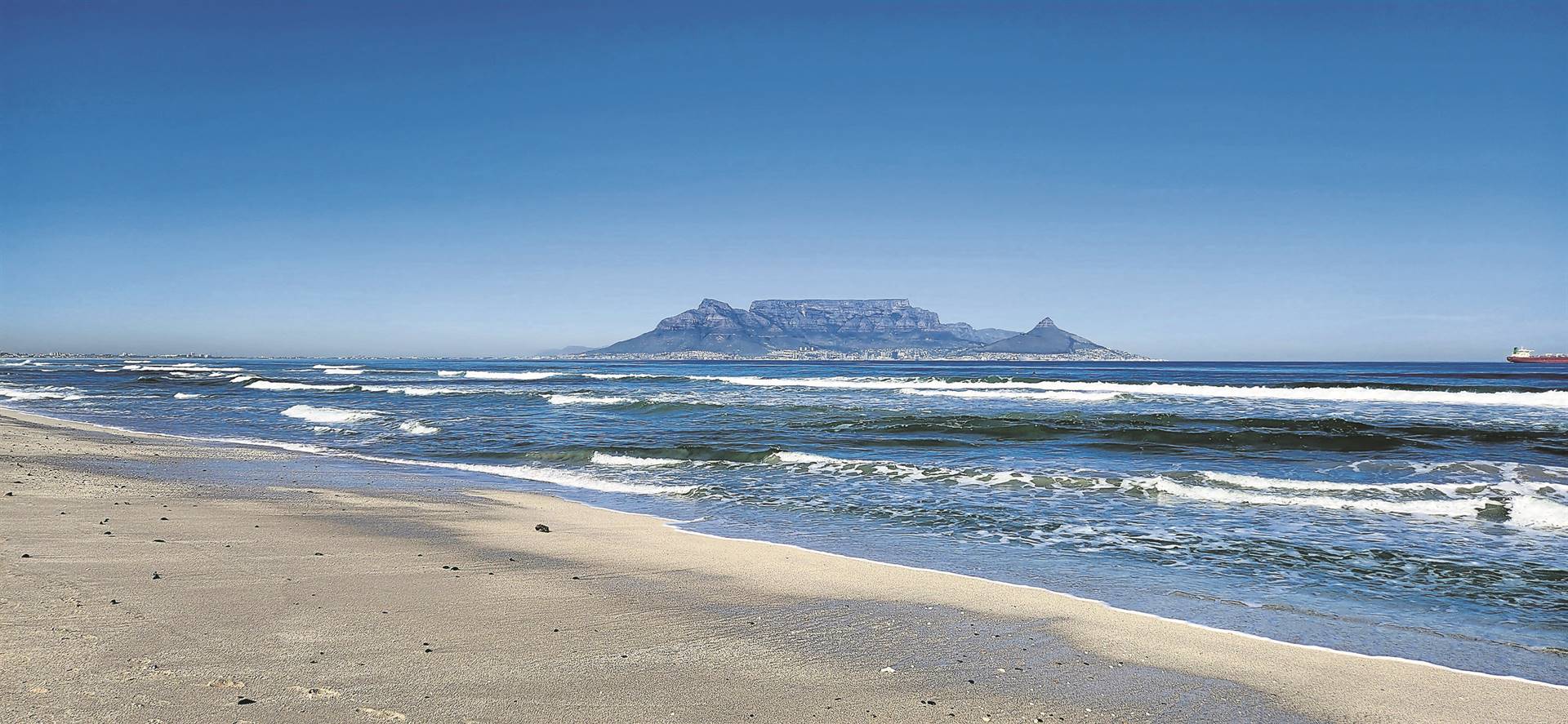
Imagine by the end of the century 100 metres of the Bloubergstrand coastline has completely washed away? This is the alleged future one of Cape Town’s most beloved beaches is currently facing, according to a recent study conducted by HawaiianIslands.com
The survey finds that Bloubergstrand is under threat due to rising sea levels, which could lead to its significant shrinkage by the end of the century.
According to a recent study conducted by HawaiianIslands.com, based on European Commission data estimating global shoreline changes, Bloubergstrand is predicted to lose approximately 112,1 m of its shoreline by 2 100, making it the ninth-most at-risk tourist beach in Africa.
“This alarming revelation serves as a stark reminder of the impending consequences of climate change on our precious coastlines. While sandy beaches constitute more than one third of the world’s coastline, we could potentially lose almost half of them by the end of this century,” the survey reads.
Possible solutions
The City of Cape Town said it is aware of this and has noted the study’s predictions.
Eddie Andrews, Deputy Mayor and Mayco Member for Spatial Planning and the Environment, said, based on various international scientific studies, the science of climate change-induced sea-level rise (SLR) is an extraordinarily complex and dynamic science, and as a result there remains some uncertainty with SLR predictions, especially in the long term – that is, by 2100.
“Uncertainty with SLR predictions and the related effects on coastal processes such as coastal erosion are also reflected in the various Intergovernmental Panel Climate on Change (IPCC) assessments scenarios (where the IPCC is generally used as the global benchmark for SLR predictions, among other climate change impacts).
“The IPCC SLR predictions are qualified using various emission scenarios with varying ‘degrees of confidence’.”
“These degrees of confidence typically decrease into the future, especially in the longer term. This uncertainty is a consequence of the complex nature of global ocean and atmospheric dynamics (and how they interact), and the drivers behind these dynamics, which are typically multi-scalar in nature. Uncertainty surrounding SLR predictions also exists due to our inability to determine which trajectory (emission and related SLR scenario) we are likely to follow in respect of curbing greenhouse gas emissions, which in return influences the rate of SLR, especially into the long-term,” Andrews told TygerBurger.
He adds that there are also well documented regional influences on SLR which impact local rates of SLR and which result in differing trajectories of the rate of increase in SLR compared to the global mean. “Further, and from the Coastal Management branch’s (CMB) experience of coastal management and engineering at the local level, we know that at the site specific scale (which can range from a very small coastal area of a few hundred meters up to a larger coastal bay), there are local biophysical characteristics that can and do influence beach dynamics, either leading to beach accretion, create a stable state, or may lead to beach erosion over time.
“Whilst the CMB appreciates the findings of the study referred to, for the various reasons mentioned, we would caution against relying on the absolute and definitive determination of SLR and the inferred effect on coastal erosion quoted in the study into the long-term based on a global study that does not consider complex local biophysical factors and coastal processes at site specific scale,” he says.
This is not the only Cape beach that has recently been identified to be significantly affected by erosion. A study published in January found that 16 Mile Beach in Yzerfontein is rapidly eroding with a notable section already disappearing.
Andrews told TygerBurger that the City has developed and implemented a number of key strategies and planning interventions in response to climate change induced coastal risk and vulnerability. “As indicated, given the complex nature of climate and oceanographic science, planning for uncertainty and building coastal resilience is a key focal point of the CMB’s work and future planning.”




 Publications
Publications
 Partners
Partners
























